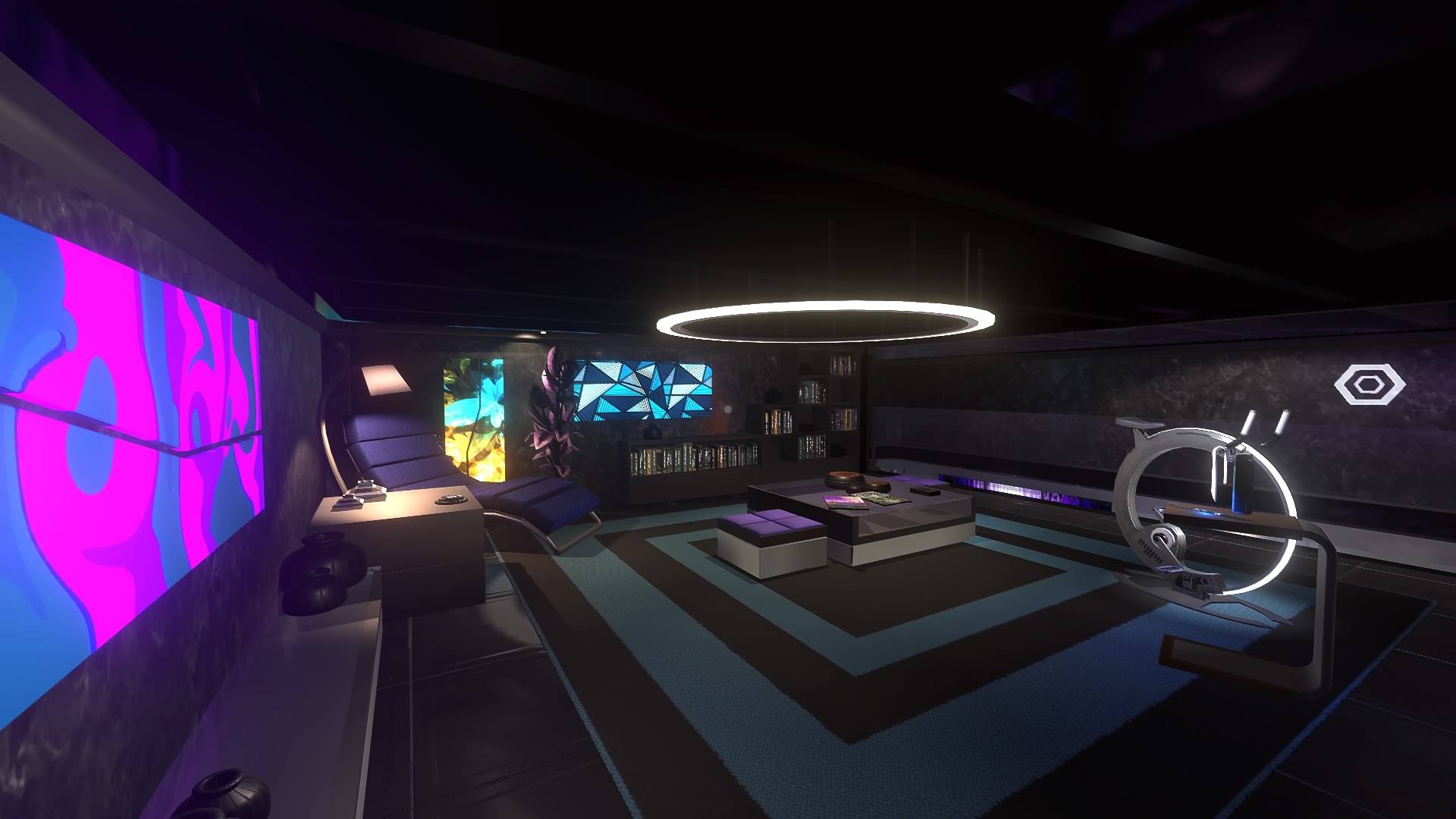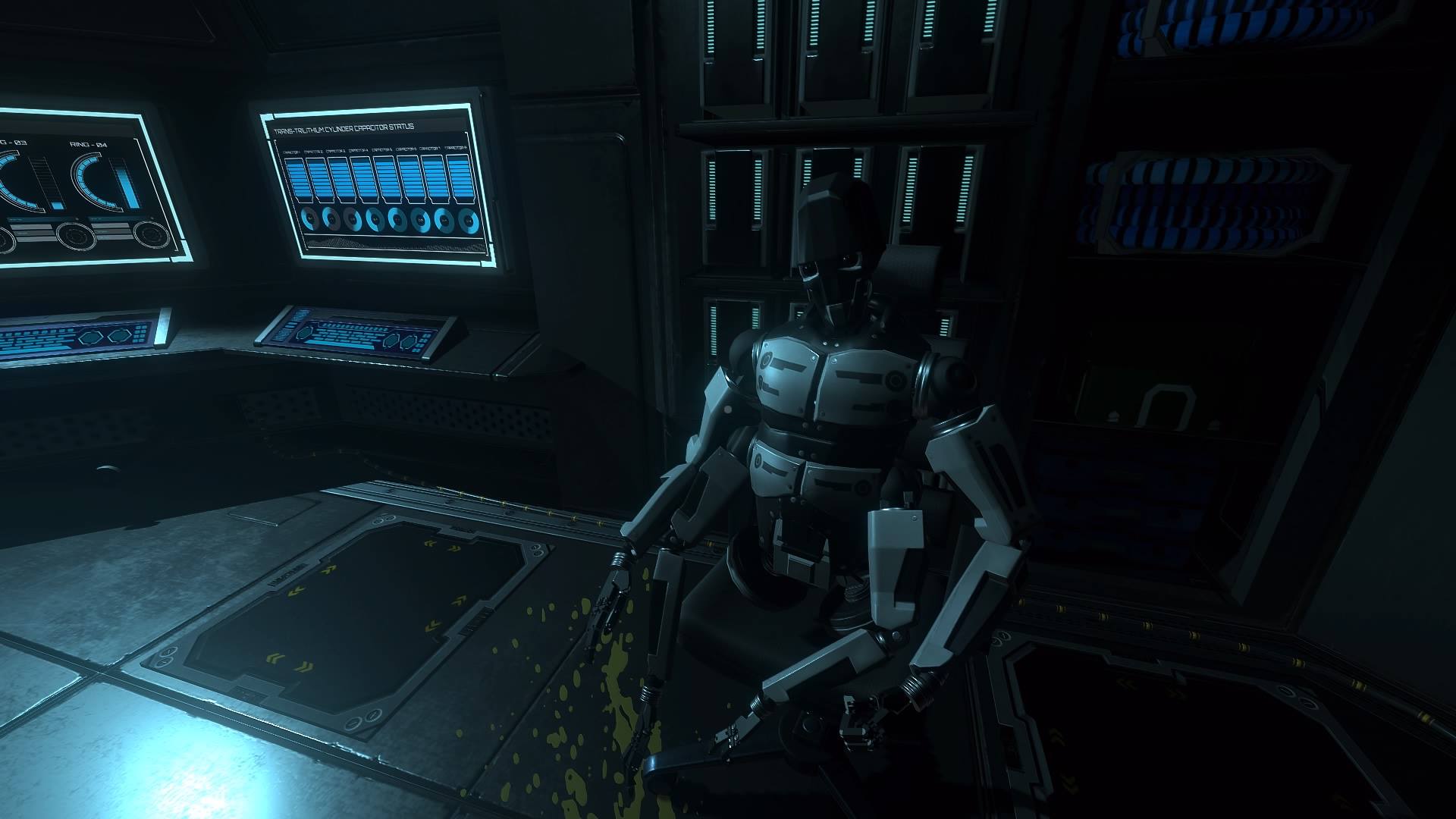Platforms:
Xbox One, PC,
Released:
February 20, 2018
Publisher:
The Station Game
Developer:
The Station Game
The Station is one of the shortest games I’ve played on the PlayStation 4. If you are a whiz at puzzle games, or the increasingly popular ‘walking simulators’, then you are going to have no trouble rolling the credits in just over an hour. While my initial reaction to the credits rolling was fiercely negative, after a few days musing on The Station I am left feeling very positive about the experience. This is the kind of game I would recommend to fans of experiences like Gone Home and Everybody’s Gone to the Rapture, and I feel The Station will earn similar respect in time. What started from a successful Kickstarter campaign now has the potential to reach a wider audience, and I think The Station deserves that reach.

In The Station you play as an unnamed recon specialist who is tasked with investigating The Espial, a research space ship that has gone radio-silent. The Espial is orbiting a newly discovered planet inhabited by an intelligent alien race caught in the throes of a civil war, and it’s your job to find and determine the fates of the three chief crew members: Aiden (Engineer), Mira (Captain), and Silas (Researcher). Through clever puzzles and some sharp intuition, The Espial’s various labs, viewing bays, and crew quarters will be unlocked and the whereabouts of the crew will be revealed. It’s a cliché take on the “abandoned space station” format we’ve seen in many films and games of the past, but I found myself intrigued enough to complete The Station in a single sitting.

The developers of The Station, who call themselves “The Station Game” (how apt), have crafted a smart, intuitive first-person narrative that fosters an environment of discovery and exploration. Like a good subtle sci-fi film, The Station doesn’t disrespect the player by spoon-feeding exposition and universe building. Instead, it allows the world to breathe, and lets the player uncover information and clues by exploring the titular station. Audio and text logs are represented by floating blue spheres and white hexagonal shapes, respectively, and are products of The Espial’s AR integrated environment.
These logs flesh out the game’s story, give depth to the characters you are searching for, and give an insight into the alien race that they have discovered. The more emails I read between the characters and the more conversations I listened to, the more I cared about them and was implored to keep digging to find them. A simple yet effective hook which can make or break these short, narrative-focused games, and where many have failed, The Station succeeds.
The main challenge in The Station is solving the game’s puzzles. While there aren’t a vast range, the puzzles are intuitive and varied enough to please most players. I’m not the more proficient puzzle-solver myself, and felt a real sense of accomplishment when I was able to crack a locker password, or override a power mainframe. Story, game design, and challenge thread together expertly in The Station; each puzzle solved unlocks something crucial to the plot and propels the game forward, rather than bog down and pad out the experience.
“…when a console generation-and-a-half worth of control streamlining is suddenly thrown away, things can get confusing quickly.”
Control-wise the game is a little clumsy in its interactions with the environment and objects being handled by L1 and R1. This feels out of place in a time where most control schemes are streamlined. Puzzles that would have benefited from the precision of a d-pad verge on frustrating with the erratic tendencies of the analogue sticks, causing me to need to restart some puzzles due to an incorrect input. Like a lot of first-person narrative games the walking speed is punishingly slow, and the run command is mapped to R2, which is another counter-intuitive decision in my opinion due to most modern games implementing a push of L3. Am I being nit-picky? Perhaps, but when a console generation-and-a-half worth of control streamlining is suddenly thrown away, things can get confusing quickly.
Visually, The Station is stuck in an older era. While the vistas of space are pretty, and some of the tech around the ship is impressive on a design level, the execution is of fairly low quality. I have no doubt that playing on a PS4 Pro or on a high-end PC would smooth out some of the roughness, but on a stock PS4, much of the environments look like they could belong in the original Mass Effect (2007). The game also suffers from regular drops in framerate to the point where I thought the game was crashing. Turning a corner too fast can result in the game screeching to a halt while the environment is loaded in, with some excruciating texture pop-in occurring on many occasions.
In spite of this, when the stars align and the game runs well, and the textures smooth over, the station feels real and tangible. Seeing the corpse of a mangled robot pries curiosity, and seeing books strewn across a study raises suspicion as to what occurred there. Regardless of the graphical fidelity of The Station, the game succeeds in creating an environment that is believable and intriguing
A game that has replay value these days is a rare treat. Most games try to suck you in with post-release DLC or end-game content, yet The Station compels further playthroughs on the merit of it’s mystery alone. While I clocked the game in just over an hour, I started again immediately in the hope that I would uncover more clues, more backstory, and discover more puzzles. I am happy to say that I did, and I strongly urge anyone who plays The Station to do the same.
Positive:
- Tension and mystery aboard an abandoned space station
- Audio and text logs provide fleshed out backstory
- Intuitive puzzles
Negative:
- Very short runtime
- Major framerate issues
- Old-gen graphics
While at first the abrupt ending of The Station caught me off guard, the lingering sense of discovery, accomplishment, and genuine intrigue has made the game a stand-out for early 2018. These games aren’t for everyone; if you prefer games of the shooty-shooty bang-bang variety, look elsewhere. For those who appreciate sci-fi, puzzlers, and the vast limitlessness of space, you owe it to yourself to check out The Station.













